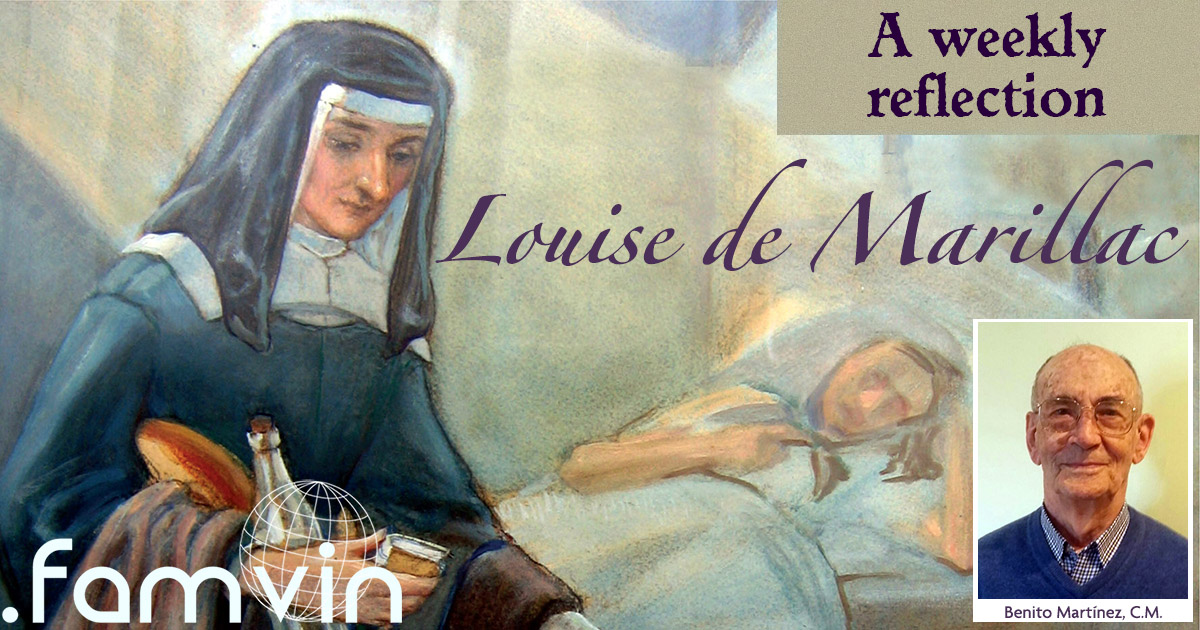“I can no longer hide the sorrow of my heart at hearing that much is to be desired in you. […] Where is the spirit of fervor which animated you when you were first established in Angers and which led you to esteem your directors so highly? You looked upon their advice as orders which you never failed to carry out with the respect and esteem you owed them. […] There must be great union among you which will lead you to show great forbearance for one another; that is to say, you will not object when you are warned of your faults or told how you must act. You will also excuse any fault you perceive in any of your sisters. My God, how reasonable that is, my dear sisters, since we commit similar faults and need to be forgiven. If our sister is depressed or forlorn, if she is too quick or too slow, what in the world do you expect her to do about it? This is part of her character. Although she often tries to overcome herself, nevertheless, she cannot prevent these inclinations from frequently appearing. And should her sister, who is supposed to love her as herself, become annoyed with her, be rude to her or frown upon her? O my dear Sisters, be on your guard against acting like this. Instead, pretend that you do not notice it and do not criticize her, bearing in mind that it will soon be your tum and you will want her to act this way toward you. This, my dear Sisters, is what it means to be true Daughters of Charity, for the mark of charity in a soul is, among all other virtues, this ability to put up with everything.”
Louise de Marillac, letter to the Sisters at Angers, July 26, 1644 (l. 104B)
Reflection:
- Angers was a city with bishopric, university and court. Its position near the sea, its river network, its large population and its fertile land were the envy of other cities. The hospital was a mess. It got better when its governess was changed, and with the help of volunteers called the “sisters servants of the sick poor, in a spirit of humility, meekness and Charity.” But this governess died, everything collapsed. Mrs. Goussault asked Vincent to send Daughters of Charity. When they arrived in 1640 “there were about 30 or 40 patients, men and women. The poor of the city did not want to go to the hospital, and if they were forced to go, tried to take their own nightgowns.” The foundation seemed an adventure: it was the first time that the Daughters of Charity were in charge of a hospital, without having beside them the Ladies of Charity (AIC); they were more than 150 miles away from Paris. But it was a success. People said that everything had improved, and the administrators feared that the Sisters would become the owners. So they began to criticize and murmur about them. Saint Louise, aware of this, wrote this letter.
- Also today we complain without reason about many things in community life, we murmur of the Sisters, our family, criticize our friends, spouses do not endure, there is no respect between parents and children, nor the Sisters among themselves. Often cited as an excuse is familiarity and trust, but favoring oneself.
- Respect, understanding and tolerance are needed: respect between spouses, parents, children, among friends and the Sisters of the community, so that each one would be what he or she is and what he or she wants to be, without harming anyone, understanding and tolerating others faults and weaknesses, always valuing the positive aspects they have more than the negative.
Questions for dialogue:
- Do you try to understand the people around you, to respect and tolerate them as they are?
- Do you know how master your love of self, which, as Saint Louise said, often becomes a bad thing?
- Do you accept nice people as well as those who may be seen as “not so nice”?
- If you were asked for the values of the people with whom you relate, would you be able to list them?
Benito Martínez, C.M.








0 Comments